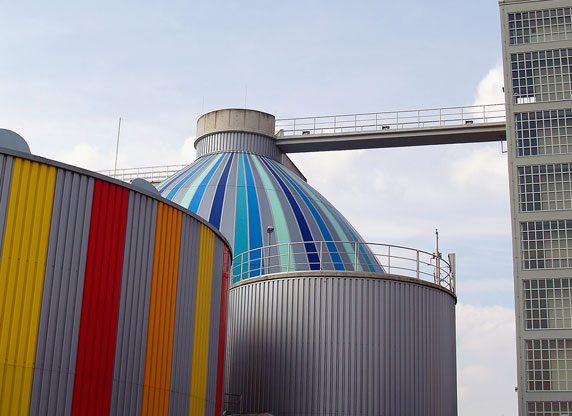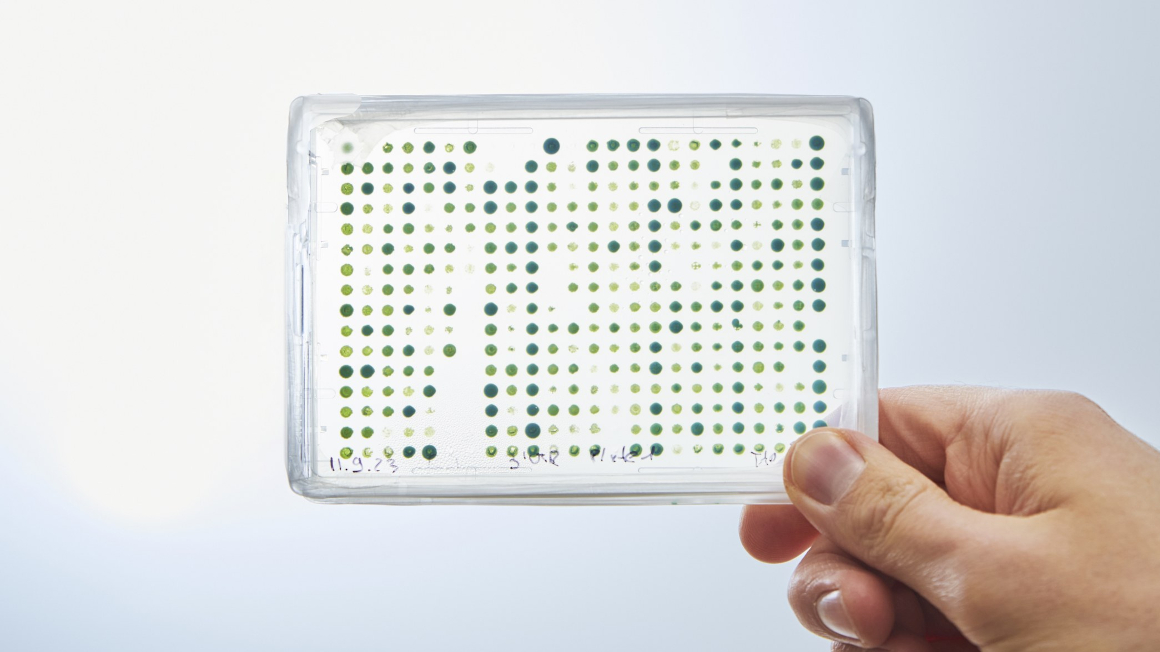
Today, the strategic alliance ‘ZeroCarbonFootprint – ZeroCarbFP’ is exploring the ways in which this hidden potential could be recovered. The twelve participating partners in the alliance, which officially began work in 2013, are hunting for microorganisms that can use the carbon-rich wastes as substrates and in the process convert them into valuable building blocks and substances for industry. Around half of the funding for the approximately 48 million-euro alliance is being provided by the BMBF as part of the ‘Innovation Initiative Industrial Biotechnology’ programme.
Every day, around 10 million cubic metres of wastewater flow through the German sewage networks and onward to various plants for treatment. This wastewater carries masses of organic cargo, meaning also significant quantities of carbon and energy, and to date represents a largely untapped resource. Such carbonic waste streams can also be created outside of the wastewater sector: Biodiesel production process also produces crude glycerine, bioethanol production results in CO2, and the process of bioleaching in mining leaves behind a metal-enriched broth.
Valuable resources lying dormant
“We want to unlock these waste streams as a source of raw materials, with the aim of manufacturing innovative products,” says Dirk Bogaczyk from Emschergenossenschaft, one of Germany’s largest associations for water management. Bogaczyk is also coordinator of the ‘ZeroCarbFP’ strategic alliance. “Among the products that we want to manufacture are chemicals for de-icing and coolants, high-performance additives for lubricants, as well as oils and basic chemicals for the plastics industry,” says Bogaczyk. Technologies for bioleaching (also known as ore leaching) as well as biotechnological procedures aimed at increasing energy yields from wastewater are also being developed.Since July 2013, seven companies in research, industry and the public sector have joined forces as part of a unique alliance. Working alongside Emschergenossenschaft is BRAIN, Fuchs Schmierstoffe, Enzymicals, Bioeton, Ceritech and Südzucker. Including academic research partners, the nine-year strategic alliance comprises a total of 12 partners from across Germany.
Microorganisms take central place
A key role in the alliance is being taken by a number of naturally occurring and specialised microorganisms, which will utilise the carbon-rich waste as a foodstuff. Thereby, their metabolism converts the waste materials into interesting chemicals. A team of microbiology specialists headed by Guido Meurer from Zwingenberg-based BRAIN AG have scoured not only the vast bioarchives at BRAIN but have also taken site samples from industrial plants operated by partners in the alliance, with the aim of discovering microorganisms that display a special talent for this task of conversion. The best candidates are optimised using biotechnological techniques to prepare them for application in industrial production.
Single cell oils from wastewater
ZeroCarbFP consists of five sub-programmes that are each focused on a different waste material with a specific valuable product for later commercialisation. The sub-programme ‘Additive 2’, for example, concerns the exploitation of wastewater. Here, fermenting in a series of digesters is a mixture of microbes that creates biogas from the organic materials. For this biogas to burn well, the methane content must be as high as possible. “The alliance is thus looking for organisms that can use the wastewater residues to produce oils and lipids or enhanced methane gas in our bioreactors,” says Bogaczyk. Thereby, the microbial oils known as single-cell oils are especially desirable. These are distinguished by a unique fatty acid composition and are well suited for use in energy production, as a platform chemical, or as an additive in the lubricant industry.
Microbial fuel cell delivers power
There have already been some promising results: “The scientists at BRAIN have found a number of different microorganisms for the production of oils,” says Bogaczyk. These candidates will now be subject to further investigation, while alliance partners are already considering how best to incorporate the oil-bacteria in their sewage plant operations. The latent energy in wastewater is the focus of a separate sub-project being pursued by researchers from the Karlsruhe Institute of Technology (KIT) together with Emschergenossenschaft. The two partners are currently experimenting with microbial fuel cells in the laboratories in Karlsruhe with the aim of optimising bacteria-based electricity production. In the future, they will also carry out their research in the test sewage plants operated by Emschergenossenschaft in Dinslaken. At their first annual meeting in September 2014, the alliance was able to report positive news from all five sub-programmes: all objectives set for this time have been achieved. The first patent applications are now being compiled, covering the microorganism-based production of speciality products such as coolants, lubricant additives and base chemicals from waste materials. The alliance has commissioned an analysis and quantification of sustainability aspects to ensure that the biobased processes and products are sustainable. The objective here is to find out how much CO2 can be saved by the innovative process and the precise environmental contribution made by utilising waste materials as a source of raw materials.
Author: Philipp Graf


